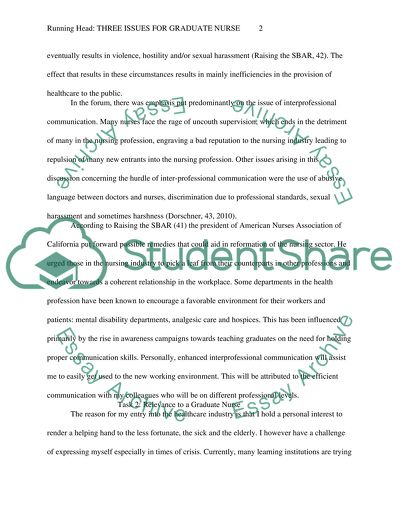Cite this document
(“Three Issues for Graduate Nurse Essay Example | Topics and Well Written Essays - 1750 words”, n.d.)
Three Issues for Graduate Nurse Essay Example | Topics and Well Written Essays - 1750 words. Retrieved from https://studentshare.org/nursing/1433663-three-issues-for-graduate-nurse
Three Issues for Graduate Nurse Essay Example | Topics and Well Written Essays - 1750 words. Retrieved from https://studentshare.org/nursing/1433663-three-issues-for-graduate-nurse
(Three Issues for Graduate Nurse Essay Example | Topics and Well Written Essays - 1750 Words)
Three Issues for Graduate Nurse Essay Example | Topics and Well Written Essays - 1750 Words. https://studentshare.org/nursing/1433663-three-issues-for-graduate-nurse.
Three Issues for Graduate Nurse Essay Example | Topics and Well Written Essays - 1750 Words. https://studentshare.org/nursing/1433663-three-issues-for-graduate-nurse.
“Three Issues for Graduate Nurse Essay Example | Topics and Well Written Essays - 1750 Words”, n.d. https://studentshare.org/nursing/1433663-three-issues-for-graduate-nurse.


